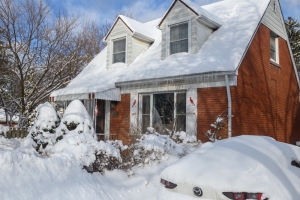Article Categories
Recent articles
-

What’s Out And What’s In for Home Decor in 2026
Design | January 25 2026 -

Winter Home Maintenance: Are You Overlooking These 7 Chores?
News | January 18 2026 -

The Ways in Which a Broker Can Help You Negotiate Invisibles Costs When Purchasing a Home
Finances | January 11 2026 -

How to Integrate Antiques and Thrifted Items into a Modern Decor?
Design | January 9 2026 -

How to Calculate the True Cost of Owning a Home
Finances | January 4 2026
